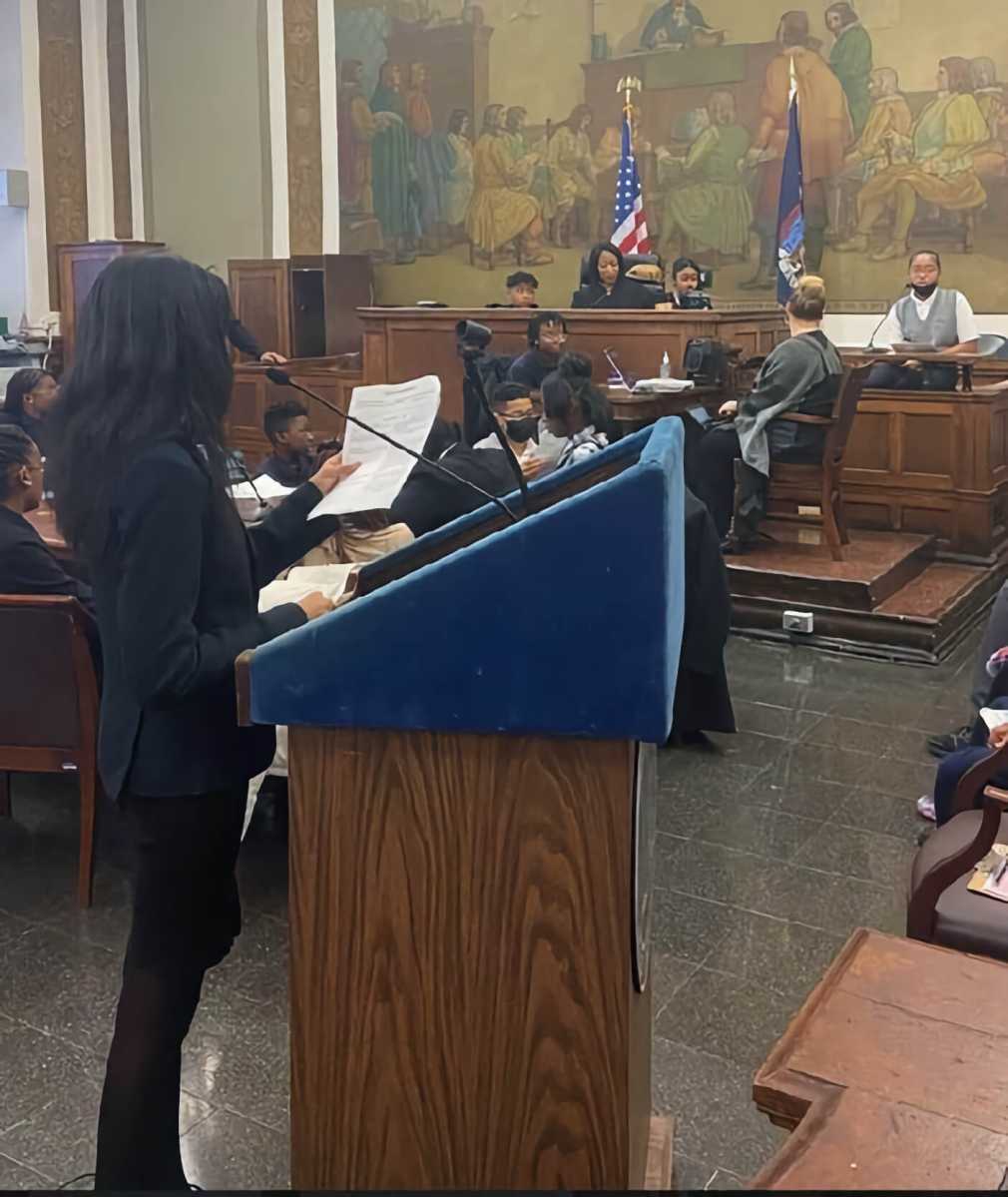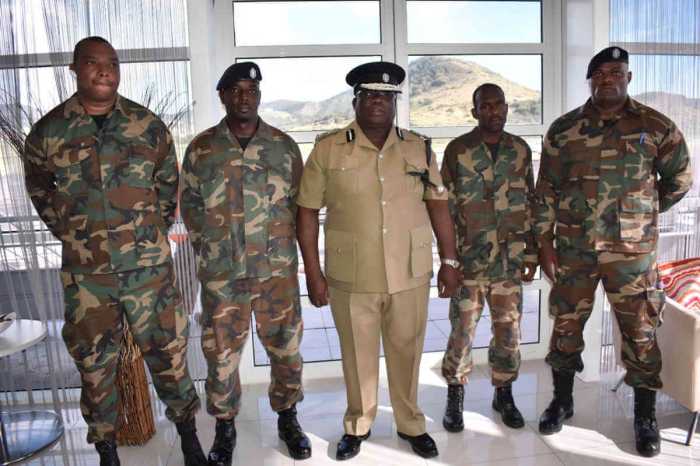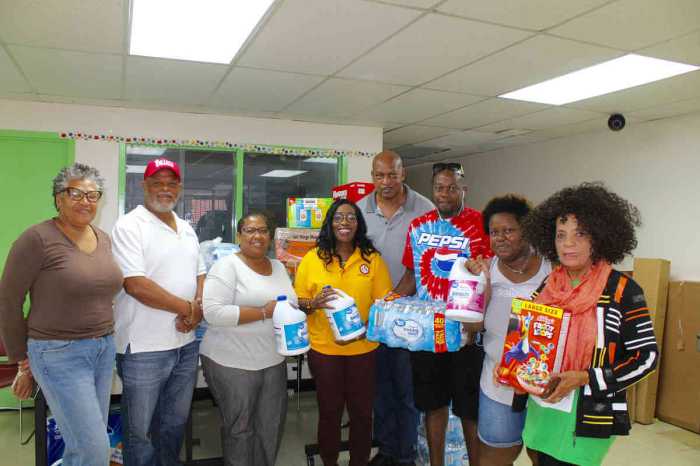Over 50 Seventh Grade students from Harlem Village Academy (HVA) recently ascended the steps of the iconic New York State Supreme Court, at 60 Centre St. in lower Manhattan, to participate in their first-ever mock trial.
According to Acting New York State Supreme Court Justice J. Machelle Sweeting, who both coordinated and presided over the trial, it was the school’s first out-of-classroom field trip since the pandemic lockdowns were imposed in 2020.
The Hon. Adam Silvera, administrative justice of Supreme Court Civil Matters, welcomed the students to the court.
Justice Sweeting, who traces her roots to The Bahamas, told Caribbean Life, she hopes that “it will be the first of many opportunities for students to learn and to positively interface with our court system.”
Through this experience, Justice Sweeting said she seeks “to help students develop their critical and analytical thinking; become civically engaged; fortify their knowledge of classroom subjects; expose them to the many career opportunities that exist in the court; inspire them to pursue a career in law; and give them hands-on experience that will help build their character as global citizens.”
Sitting alongside Justice Sweeting on the bench were students Anijah Colon and Jamal Haynes, who were sworn in as Judges of the Day.
Justice Sweeting said the students are enrolled in a two-year course in social studies taught by teacher Arax LeFevre.
“The focus of this year’s seventh grade curriculum is a comprehensive understanding of the three branches of government,” Justice Sweeting said. “The mock trial helps illustrate the principles and the inner-workings of the judicial system, which is the third branch of government.
In the case of The Students of Harlem Village Academy v. The New York City Department of Education, Justice Sweeting said on trial was the important issue of school lunches.
“HVA students argued in support and opposition to the constitutionality of the foods served and their own right to food choice,” she said. “The students traded in their backpacks for briefcases and school uniforms for suits and professional attire.
“The students were actively engaged in all aspects of the trial proceedings and were assigned the roles of judges, jurors, court clerks, attorneys, law secretaries, witnesses, court officers, court reporters and technology personnel,” she added.
The defense, which represented the Board of Education, was represented by student attorneys Safiatou Barry, Mariama Diallo, Stanley Johnson, Taraji Manns, Ikram Sawadogo and Taylor Walcott, Justice Sweeting said.
She said the plaintiffs, who argued in favor of a change to the school menu, were represented by student attorneys Nyla Jenkins, Harmony Bennett, Layla Blake, Sura Evans, Naim Garcia, Fodie Toure-Palmer and Jada Smith.
Justice Sweeting said each side gave an opening and closing statement, and conducted a thorough direct and cross-examination of the following student witnesses who testified: Massandje Sanogo, Olivia Williams, Jones and Husaina Barko.
She said the students also admitted exhibits into evidence, some of which were subject to vigorous objections by opposing counsel.
The case was officially called on the record and the witnesses and jurors were sworn in by HVA student Issatou Sow, who was guided by Senior Court Clerk Carlos Brown, Justice Sweeting said.
For any technological issues that arose during the trial, she said HVA students were “there to address them with the support of Supreme Court IT Robert Apicella.
“Every word of the trial was captured by an actual court reporter, who was assisted in marking the exhibits and maintaining the record by student Reine-Helene Oulatta,” Justice Sweeting said.
She said Student Court Officers Youssouf Ballo and Eli Sistrunkv monitored the safety of the courtroom and were officially deputized by real Supreme Court officer Matthew Gerrie and Officer Jahn.
After deliberating, Justice Sweeting said the jury foreperson submitted the signed verdict sheet and announced that a verdict had been reached.
“The jurors, who were all HVA students, were individually polled to confirm the the verdict was in accordance with their vote,” she said. “They overwhelmingly confirmed that that they found in favor of the plaintiffs who were victorious at trial.”


























